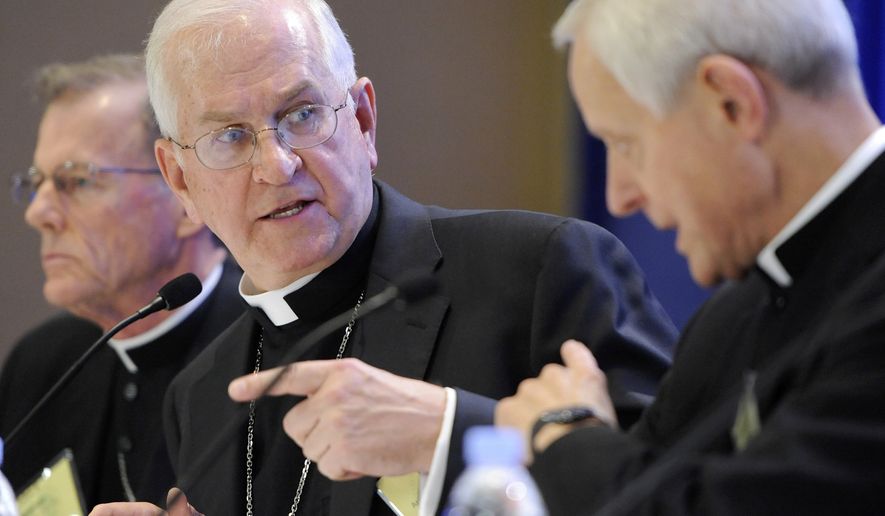The governing body of the U.S. Catholic Church this week began the process of reconciling doctrine with 21st-century medical directives, but some human rights advocates say those revisions could be a tough pill to swallow.
During their 2014 General Assembly meeting this week, the U.S. Conference of Catholic Bishops voted 213 to 2 to update for the first time in more than a decade a section of the “Ethical and Religious Directives for Catholic Health Care Services” that focuses on mergers between church and health care providers.
According to a study released in December by the American Civil Liberties Union, in 2011, one out of every nine hospital beds was owned by a Catholic-related hospital. Between 2001 and 2011, the number of Catholic-related hospitals rose 16 percent, from 329 hospitals to 381 hospitals.
“Catholic health care is huge, and it’s growing,” said Sara Hutchinson Ratcliffe, domestic program director for Catholics for Choice. “The new directives, the provisions of health care, are about bishops getting special rules to be able to run what is a very large part of the health care system.”
According to the section, Catholic health care organizations cannot permit abortions, euthanasia, assisted suicide or direct sterilization.
While updates will only be made to the section on mergers and partnerships, “frankly it’s bad enough already, there’s not much more they could do,” Ms. Ratcliffe said.
“I think the bottom line is the bishops have consistently failed to convince everyday Catholics to follow their lead when it comes to opposing abortions, contraception. The only way to impose it is by other means, whether legislatively, lobbying policy makers at the federal, state, and local levels or trying to get special rules for Catholic institutions to be exempt from various laws,” she said.
Current bans on services include more than emergency services, for example, male and female sterilization, reproductive health options, end of life treatment, HIV therapy and LGBT needs.
“Affiliations and collaborative arrangements between Catholic and non-Catholic health care institutions can raise complex questions of cooperation in evil and scandal when the non-Catholic institutions engage in intrinsically immoral procedures such as abortion, contraception, or direct sterilizations,” said the Rev. Tadeusz Pacholczyk, director of Education at the National Catholic Bioethics Center.
Kelli Garcia, senior counsel with the National Women’s Law Center, said “our concern is given where the church has been going, where the bishops have been going in terms of contraceptive requirements in particular, this will be a move to more strict adherence of directives with partnership organizations.”
One of the things the law center has advocated for when a merger occurs is a “workaround,” which could be a literal or just-on-paper practice that makes a part of a hospital or health care provider a separate entity from the rest of it, thereby allowing it to work under different secular or religious directives.
“One of the concerns this raises is they might be moving in a direction where those types of workarounds might not be permitted anymore,” Ms. Garcia said.
Another concern is for what might happen to the looser affiliations that involve sharing services or lab work.
Ms. Garcia cited a case in Washington state in which a bishop tried to stop the only hospital lab in the area from doing work for Planned Parenthood.
“Our concern is they might try to formalize that process,” Ms. Garcia said. “Those kinds of looser relationships would be regulated more strictly.”
“We don’t take any position to influence the directives,” she said. “But (the section) does affect lots of issues. It affects end of life care, also sterilization, HIV counseling, a whole range of services.”
Following the Conference vote this week, Bishop John C. Wester of Salt Lake City, chairman of the conference’s committee on communications, said the revision is not meant to be “adversarial.”
“The medical field is advancing so rapidly,” he said. “It’s very important for us to address these issues as well [as] for the sake of our people.”
• Meredith Somers can be reached at msomers@washingtontimes.com.




Please read our comment policy before commenting.